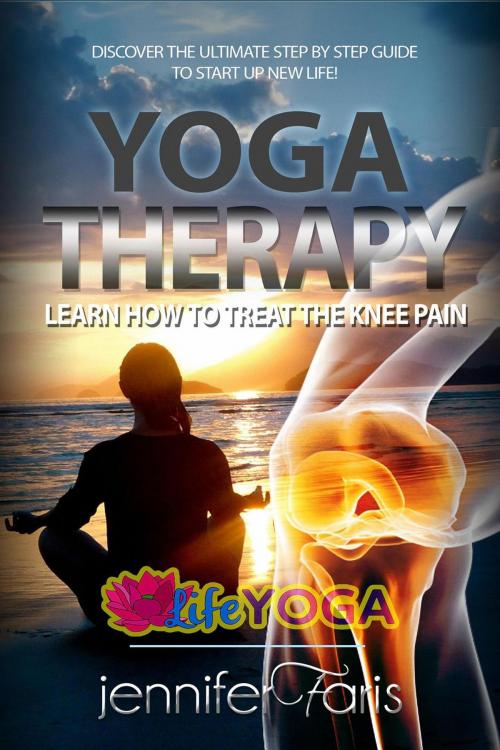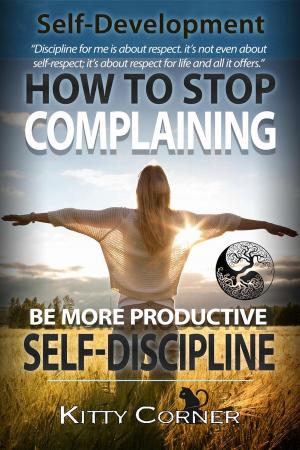Yoga Therapy: Learn How to Treat the Knee Pain
Life Yoga
Nonfiction, Health & Well Being, Fitness, Yoga, Health, Alternative & Holistic Health, Healthy Living| Author: | Jennifer Faris | ISBN: | 9781386236382 |
| Publisher: | Denzil Darel | Publication: | April 19, 2018 |
| Imprint: | Language: | English |
| Author: | Jennifer Faris |
| ISBN: | 9781386236382 |
| Publisher: | Denzil Darel |
| Publication: | April 19, 2018 |
| Imprint: | |
| Language: | English |
Excessive contact and friction of two adjacent joint surfaces may intensify arthritis. One of the reasons may be the presence of calcium crystals in some patients, these diamonds cutting into the joint surface. Yoga separates these two surfaces. On the other hand, an apparent paradox appears: poor contact and friction don’t stimulate the cartilage, and it is not recovered and renewed. The substantial shift of the surfaces pressing against each as a consequence of improper biomechanics also destroys the cartilage. In this case, yoga makes a perfect way out as it stimulates the joint surfaces to restore and prevents excessive shifts, ruptures and the appearance of destructive forces at the same time.
Moreover, we know that the joint has small connecting components not involved in full volume. This means that the surfaces sliding forward and backward relative to one another, start, in fact, knitting. In the worst cases, the joint becomes immovable. Yoga removes such bone unions gradually.
Yoga poses, or asanas, recover the knee joint flexibility, strengthen muscles and ligaments which surround it. Due to yoga, your knees will become stronger and healthier, will be able to resist heavy loads and will be less subject to damages.
Nevertheless, in the course of yoga practice, anyone can also injure his/her knees. Although yoga for knees is applied very successfully, the knees may get hurt at the wrong method. How? This may be a foolish attempt to master some yoga pose, for example, the Lotus Pose, for which you must first develop excellent flexibility and strength of your knee joints. Moreover, a person may damage the knees during yoga classes while applying too much effort, exerts himself/herself too much to achieve perfection in the asana. In other words, one should practice yoga regularly, and master the yoga poses gradually, moving from simple to complex ones.
Would You Like To Know More? This book is Delivered Instantly to Your Reading Device Just Scroll To The Top Of The Page And Select The "Buy Now" Button!
**Download Your Copy Today! **
© 2018 All Rights Reserved!
Excessive contact and friction of two adjacent joint surfaces may intensify arthritis. One of the reasons may be the presence of calcium crystals in some patients, these diamonds cutting into the joint surface. Yoga separates these two surfaces. On the other hand, an apparent paradox appears: poor contact and friction don’t stimulate the cartilage, and it is not recovered and renewed. The substantial shift of the surfaces pressing against each as a consequence of improper biomechanics also destroys the cartilage. In this case, yoga makes a perfect way out as it stimulates the joint surfaces to restore and prevents excessive shifts, ruptures and the appearance of destructive forces at the same time.
Moreover, we know that the joint has small connecting components not involved in full volume. This means that the surfaces sliding forward and backward relative to one another, start, in fact, knitting. In the worst cases, the joint becomes immovable. Yoga removes such bone unions gradually.
Yoga poses, or asanas, recover the knee joint flexibility, strengthen muscles and ligaments which surround it. Due to yoga, your knees will become stronger and healthier, will be able to resist heavy loads and will be less subject to damages.
Nevertheless, in the course of yoga practice, anyone can also injure his/her knees. Although yoga for knees is applied very successfully, the knees may get hurt at the wrong method. How? This may be a foolish attempt to master some yoga pose, for example, the Lotus Pose, for which you must first develop excellent flexibility and strength of your knee joints. Moreover, a person may damage the knees during yoga classes while applying too much effort, exerts himself/herself too much to achieve perfection in the asana. In other words, one should practice yoga regularly, and master the yoga poses gradually, moving from simple to complex ones.
Would You Like To Know More? This book is Delivered Instantly to Your Reading Device Just Scroll To The Top Of The Page And Select The "Buy Now" Button!
**Download Your Copy Today! **
© 2018 All Rights Reserved!















